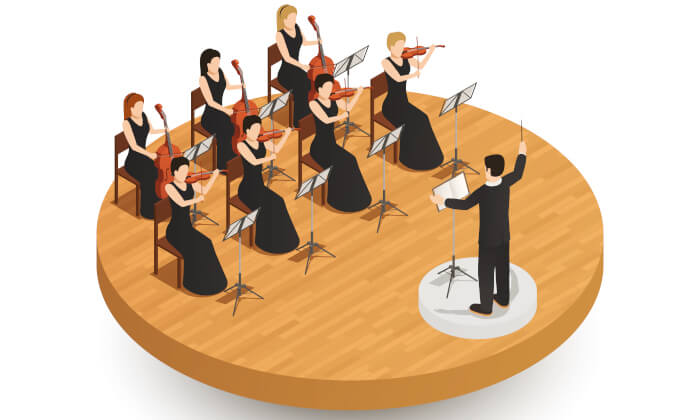If you’ve followed my ramblings (sometimes known as reviews), you’ll know I’m intensely passionate about music. Over the past few years I’ve reviewed so many open source music players I’ve lost count of them all. However many I review, there’s always an enterprising Linux user who tells me I’ve missed one. Always happy to fill in the gaps, hoping to find a gem of a music player that will replace my favourite (that’s Tauon Music Box). I’ve even convinced a few of the motley LinuxLinks open source enthusiasts to migrate to Tauon Music Box. It’s either my cunning persuasiveness or that Tauon Music Box is just mindbogglingly awesome.
Now I am really rambling. Let’s get back to the focus of this article; my take on PQMusic.
PQMusic is billed as a minimalistic and easy to use audio player. The software is written in the Python programming language.
This is free and open source software.
Installation
The software was tested on Manjaro and Ubuntu. There’s a convenient package in the Arch User Repository (AUR) for Arch-based distros such as Manjaro. The package installed without any issues.
If you’re not running Manjaro, the easiest way to get up and running is to use the project’s AppImage. AppImage is a universal software format for distributing portable software on Linux without needing superuser permissions to install the application. AppImage doesn’t really install software. It’s a compressed image with all the dependencies and libraries needed to run the desired software. If you’re new to AppImage, read our Linux for Starters section.
Alternatively, as the full source code is available, you can clone the project’s GitHub repository, install the project’s dependencies, and go down the manual approach. However, sometimes life is just too short, hence why Manjaro with access to the AUR is a useful distro for testing software.
Next page: Page 2 – In Operation
Pages in this article:
Page 1 – Introduction / Installation
Page 2 – In Operation
Page 3 – Memory Usage
Page 4 – Summary

Thanks, I like DeaDBeeF
Yes, we like DeaDBeeF too, it scored fairly highly in our music players roundup.
DeaDBeeF: almost as fun to type as it to listen
Another software application with just a stupid name
Much software development seems to be fairly pointless.
We have small players already. DeaDBeeF plays anything, Audacious is nicer on KDE, QMMP is cute, Strawberry is great for opening a folder> opens in new playlist… and many others.
We have amazing features – looking at Guayadeque, which is now dying – but which has the MOST convenient Lyrics (autosearch, click to search, click to open search in browser – copy paste and save text to the track), as well as a superb playlists functionality, superb filtering and Smartplay, and many features lacking in most new players.
Why aren’t NEW players interested to bring forward the best functions? Maybe New developers are just too lazy to research before they design…
Ben, you make some interesting points. Linux is very strong in some areas (such as music players) and yet very weak in many other software genres. Points to bear in mind:
– Open source developers have no obligation to include things like filtering and smartplay or other features some people deem important. Many projects start out with a developer wanting a music player that meets their needs, which obviously won’t necessarily accord with others.
– Define best functions? Someone may want gapless playback or refined playlists, someone else wants things like an equalizer. Adding everything under the sun is likely to result in a bloated program with tons of bugs. It’s much harder to maintain complex software particularly for a sole developer.
– Some features are harder to code than others. Many open source developers are coding in their spare time, they are going to focus on what is important to them
– Some developers take donations, they may be willing to add features that some users want if there’s a financial incentive to do so. Unfortunately, so many people leech, never helping financially with any open source project (or even in some other way). When you look at a project’s GitHub many music players code is written almost exclusively by a single person.
– A developer writes a program for different reasons e.g. they may write a music player to help them learn a new language or toolkit.
– You say Guayadeque is dying. I’ve never tried that one. Assuming it’s open source, there’s nothing to stop anyone from forking the project and carrying on with the project.